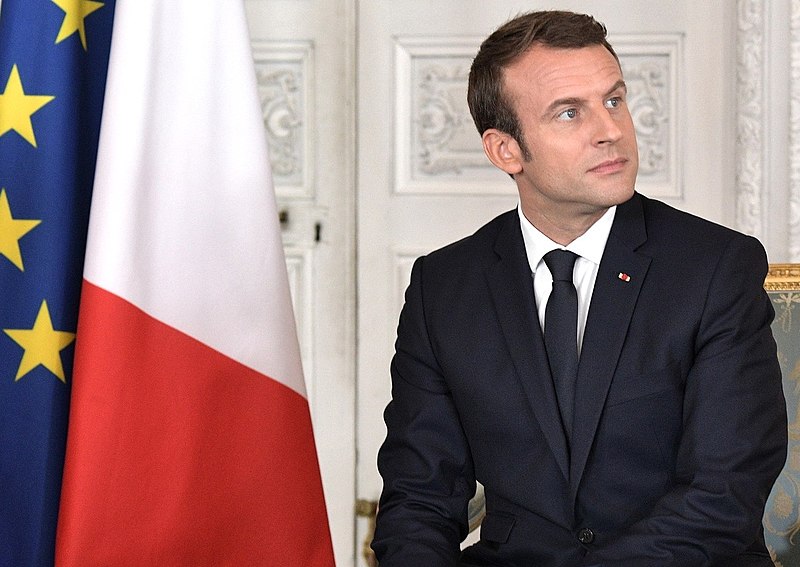What’s the Tea between the U.S., Australia, and France?
The French president Emmanuel Macron, during a meeting with the Russian president Vladimir Putin (Versailles).
On September 15th, 2021, United States President Joe Biden announced a nuclear submarine deal with Australia as part of a wider agenda to counter Chinese naval expansion in the waters of Southeast Asia. It became quickly apparent that this decision was a controversial one; in order to create this new accord, Australia had to quit a French submarine purchase deal created by the two allies in 2016. Traditionally, the redrawing of deals is a cooperative affair shared with close international allies. However, France was completely blindsided by the announcement of the accord; Paris negotiators were left completely out of the deal-making process.
Biden’s deal is just one facet of AUKUS, the acronym name for the security pact created by the U.S., the United Kingdom, and Australia. Centered on the Indian and Pacific Oceans, and intended to counter unspecified security concerns, AUKUS is expected to negotiate the sharing of intelligence between the three member countries about artificial intelligence and undersea technologies, in addition to the nuclear submarine deal. Although the development of AUKUS is a decisive move by Western allies against growing Chinese influence, its formation may have replaced something equally important. The discarded France-Australia deal had been viewed as an act of international cooperation against China, allying France, Australia, and the U.S. through the US-partner company Lockheed Martin. For better or worse, the AUKUS pact leaves France, New Zealand, and other U.S. allies out, even in name.
France’s apparent dismissal as a close ally to the U.S., in itself, strains France-US relations. What particularly evoked the rage of French President Emmanuel Macron, however, was his lack of prior knowledge of the deal. France was notified of the AUKUS pact only hours before President Biden officially announced it. This breach of trust, according to France, was immense, viewed by France as the first major rift in the history of friendly France-U.S. relations, which date back to America’s founding. Additionally, the dismantling of the France-Australia deal cost France about $66 billion, representing the largest loss to the French Defense industry in history.
Macron’s discontent was expressed as France swiftly cancelled a gala in Washington celebrating the anniversary of a Revolutionary War battle, and temporarily recalled its ambassadors to both Australia and the United States for the first time in history for either country. The leading French newspaper, Le Monde, even compared the Biden administration’s decision to rash actions of the previous administration under former U.S. President Donald Trump.
As of now, the U.S. is attempting to navigate its way out of this tense diplomatic situation. On September 22nd, President Macron and President Biden held a phone call to discuss recent transpirations, and Anthony Blinken, U.S. Secretary of State, met and spoke with Jean-Yves Le Drian, the Foreign Ambassador of France, at the U.N. General Assembly in New York. Additionally, Blinken later spoke with the French Ambassador to the U.S., Phillipe Etienne. Despite quick mobilization to make amends, the Biden Administration is wary that the formation of AUKUS and surrounding circumstances will have lasting effects on the U.S.-France relationship. In times of increasing tensions between Western nations and China, this rift between allies could likely have an impact on future diplomacy between the two global superpowers, China and the United States.
For more information, visit the following sources:
“Furious Over Sub Deal, France Recalls Ambassadors to U.S. and Australia”
“In Submarine Deal with Australia, U.S. Counters China but Enrages France”
“US tries to make nice with France after Australia sub snub”






